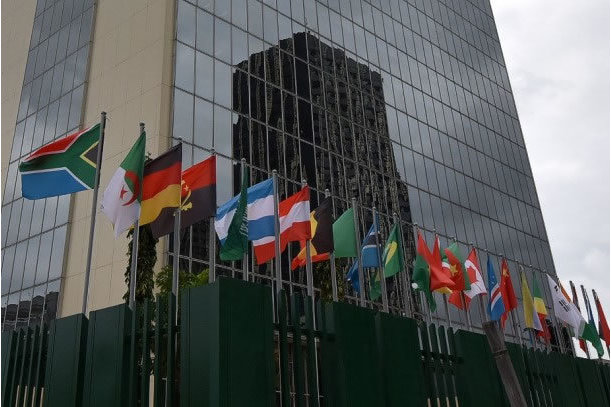Latest News
Stakeholders validate report on Abidjan-Lagos Highway Corridor

News Highlight
The meeting also recommended the harmonisation and simplification of customs procedures, including fast-track issuance of certificates of origin.
Stakeholders have called for the creation of exclusive economic zones and hubs along the Abidjan–Lagos Highway Corridor. This is to boost trade, investments, growth and overall development in the West Africa. The Corridor supports about 75% of the trade activities of the sub-region.
This was one of the outcomes of a regional workshop held in Abidjan on June 20-21, 2017 to validate the outcomes of a study commissioned by the African Development Bank on the Abidjan–Lagos Highway Corridor. The study, which assessed the trade facilitation gaps and needs on the Corridor, was carried out by a Barcelona-based firm, the Advanced Logistics Group.
The meeting also recommended the harmonisation and simplification of customs procedures, including fast-track issuance of certificates of origin. According to the stakeholders, this requires the harmonization of trade regimes of the Economic Community of West African States (ECOWAS), the West African Economic and Monetary Union and the Mano River Union within the region. It will also entail the consolidation and streamlining of the processes for approval of Authorised Economic Operator and the Corridor Certified operators, in order not to duplicate efforts and processes.
Participants were drawn from a wide range of stakeholders: government representatives from the five participating member countries (Benin, Côte d’Ivoire, Ghana, Nigeria and Togo), the ECOWAS Commission, the Abidjan–Lagos Highway Corridor Organisation, development partners, civil society and the private sector. They called for the urgent establishment of a Corridor Management to facilitate a coordinated process of implementing corridor programmes.
The Abidjan–Lagos Highway Corridor covers 1,028 kilometres, across five countries, namely Côte d’Ivoire, Ghana, Togo, Benin and Nigeria. It traverses the economic capitals of these five coastal countries, starting from Abidjan and ending in Lagos, while straddling eight border crossings. Unfortunately, deficiencies, particularly the cumbersome border management and customs operations, has weakened its impact and contribution to the economic growth of the sub-region.
“For the Bank, however, the study has helped to achieve an immediate objective: identifying the specific trade facilitation gaps and needs as well as the solutions proffered. But, more importantly, it will further help the design of interventions to meet specific targets, for maximum impact, both at specific border posts and generally, along the broad expanse of the transport corridor,” said Janvier Litse, Director General of the AfDB’s West Africa Hub.
Litse called for better co-ordination among development partners engaged in the corridor in order to avoid duplication of efforts.
Related News
Latest Blogs
- How Tinubu is ensuring equitable access to public services
- Nigeria’s economic reform faces new threats
- What Ould Tah’s tenure at BADEA reveals about his AfDB candidacy
- Implementation strategy crucial for the success of 12-4 education policy
- A senator’s suspension threatens the right of representation
Most Popular News
- Artificial intelligence can help to reduce youth unemployment in Africa – ...
- Mark Zuckerberg visits Nigeria to explore startup industry
- IMF warns of global public debt approaching 100 percent of GDP
- Rise in vaccine-preventable disease outbreaks is a threat, warn WHO, others
- Tariffs stir inflation fears in US but offer targeted industry gains ...
- Soaring civil unrest worries companies and insurers, says Allianz









